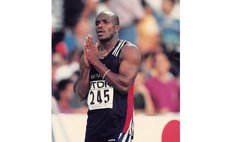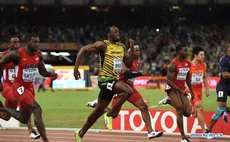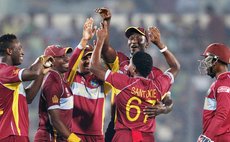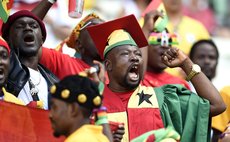How cohesive the cricket family
Right here in Dominica we had known it that our young boys would get together to the point of collectively purchasing a cricket ball for the purpose of common enjoyment. Generally, all went well. However, there were times when personal differences arose to the point where one financial contributor decided he could no longer stomach the behavior of one or more party. Thereupon the offended individual demanded a share – his share – of the ball, proceeding to cut it to pieces to exact due reparation! Nobody gained. Everyone lost. And the common enjoyment was halted until another ball could be found. That, of course, was an extreme case and likely to be exceptional to that of amateurish ignorance carried to excessive conceit!
Very well then, we may say – so much for little boys! However, the very recent happenings in West Indies international cricket makes us wonder at the behavior of so called professionals. The term "professional" is used with a degree of reservation as it applies to the West Indies setting within the sport. When John Goddard's men proceeded to capture its first series against England on English soil in 1950, only Sir Frank Worrell, Everton Weekes and Clyde Walcott answered to the classification of professional listing. Alan Rae, Jeffrey Stollmeyer, Robert Christiani, Gerry Gomez, John Goddard, Hines Johnson, Sonny Ramadhin and Alfred Valentine who made up the remainder of the team for the first Test at Old Trafford did not at the time engage in playing cricket as a specified activity as their main paid occupation.
They were, however, fully typified as belonging to, or connected with the profession. They were skilful, competent and worthy of the profession – and, indeed, a credit to the profession. Only the three W's were paid professionals in that they participated in the English League in Lancashire along these lines. A tour of England in those days stretched over five months.
You would have thought the mere matter of professional status would have accorded the highest regard for the team's three illustrious pros. Maybe so, within at best some parts of the team structure. Alas, when Worrell, Weekes and Walcott went on to make demands for six thousand dollars (E.C), each for a subsequent tour the West Indies Cricket Board reportedly labeled them "mercenaries".
On that historic 1950 tour of England Worrell had scored 15, 28; 52, 45; 261 and 138. Weekes contributed 52, 1; 63, 63; 129 and 30. Walcott 15, 9; 14, 168; 8 and 17 – all in a celebrated 3-1 triumph. The amateurs didn't do too badly either. Rae scored 14, 10; 106, 24; 68, 46 not out and 109. His opening partner Stallmeyer trumped in with 43, 78; 20, 30; 46, 52 not out and 36.
Those were the major contributions with the bat. Valentine and Ramadhin, both just about twenty years old and playing for the first time in Test cricket, Valentine had match figures of 11 for 204; 7 for 127; 5 for 183 and 10 for 160. Ramadhin secured 4 for 167; 11 for 152; 7 for 184 and 4 for 101. In summary Valentine took 33 wickets costing 624 runs (average 20.42) and Ramadhin 26 at 604 averaging 23.23.
In the batting Worrell aggregated 539 (average 89.33); Rae 377 (av. 62.83); Weekes 338 (av. 56.33); Stollmeyer 305 (av. 50.83); Walcott 229 (av. 45.80); Gomez 207 (av. 41.47). All told, six batsmen averaging above 40. Significantly, in the bowling Valentine sent down 423 overs, Ramadhin 378 overs and Worrell 99 overs – all testimony to the volume of their work rate. Everyone seemed supremely willing to labour for the team and to make supporters at home and in England feel proud. There was no television in the Caribbean so we remained glued to the ball by ball B.B.C broadcasts. Not many persons had a radio in those days. Some had to be content with reading Cable and Wireless printed reports.
It would seem everyone, the players, the board, the supporters all took elated pride in West Indies performances. This carried over into the celebrated cult of listening all night to the broadcasts when West Indies went down to Australia. Today we can see the matches on television – the world can see them in stark clarity. Very well, you would think the present ilk representing the West Indies, proceeding in the wake of a world champions' pedigree would be moved by a glorious regard for the truest meaning of professionalism in cricket.
You would think the board would be dripping with a professional approach to conducting its business. You would expect our players would be more highly steeped in the outlook of being professional in approach, having built upon the experience of their predecessors. What do we get? A board which apparently fails to communicate contract documents to its players within an ensuing eight month span. But this level of the slipshod previously expressed itself some years ago when no less than seven players were barred from representing West Indies in a youth World cup tournament for being over the age limit!
Inevitably, the responsibility for setting the tone of professionalism rests with the board. If the outlook here is weak, it will reflect just as bleak among the players whose background is reflective of less cultured educational tenets.
It is not surprising that Jamaica's Marlon Samuels depicted signs of unhappiness on his part with the recent standoff by the West Indies team against continuing the tour of India. Much he had to say was indicative of a total breakdown in the family structure of our representative cricket at the top. The board acts lamely in its dealings with players. The players are inept in dealing with their own players' association and vice versa.
Say what you will about the English and Australia equivalents, they exert a defined measure of discipline when it comes to handling their relationships and responsibilities. Thus Kevin Petersen, England's best batsman is dismissed for a difference in attitude. And Australia parted company with Andrew Symonds on disciplinary issues.
How well West Indies can cope with its bevy of braying brats is left to be seen. What dismissals will ensue no one knows. Samuels espoused the sanity that, whatever their differences, the players should have put cricket first and completed the tour of India before proceeding to address outstanding issues – professionally and as a decent family.




